Well, folks, we’re in 2025 and it’s already looking like another year beset with remakes and remasters. At the top of recent remake rumors is The Elder Scrolls IV: Oblivion. With Bethesda’s underperforming Starfield now in the rearview mirror and The Elder Scrolls VI years away, the studio desperately needs a win, and bringing back one of their most beloved games has the potential to do just that. But first, are the rumors to be believed? Based on the veracity of the rumors, it’s all but confirmed that Oblivion is getting a remake or remaster sometime in 2025. Not only was Oblivion listed on the FTC court case filings, but trusted sources such as Xbox insider Jez Corden and leakers Kobrille and NateDrake corroborate an Oblivion remaster/remake reveal during January’s Xbox Direct event. The leaks all point to this Oblivion remake being developed by Virtuos and using Unreal Engine 5 as a kind of graphics ‘wrapper’ on top of the existing Creation Engine being used as the core base.

I’m absolutely fascinated by the prospect of an Oblivion remake – heck even a remaster would have big implications. Would the remake host the same kind of modding freedom as the original? And if this turns out to be nothing more than a prettied up remaster with UE5 sparkles, why not just use the boatload of existing mods that not only pretty up the game but improve core gameplay elements? Debates are also swirling about how this remake will impact the ongoing Skyblivion fan project – an ambitious attempt at remaking Oblivion in the Skyrim engine whilst improving dungeon design and other outdated elements.
The likely prospect of a remaster poses the question: does Oblivion hold up today? Let’s explore what a remake would need to both overhaul and retain to provide the ideal Elder Scrolls IV experience. But first, the elephant in the room … no, not the potato faces and meme-worthy voice lines, the absolutely awful difficulty scaling. Oblivion features one of the most broken level scaling systems out of any game I’m aware of. The ‘use it to level it’ system is ubiquitous across the series but pairing that with enemies that scale to the player’s overall level result in a monumental imbalance fraught with flaws.
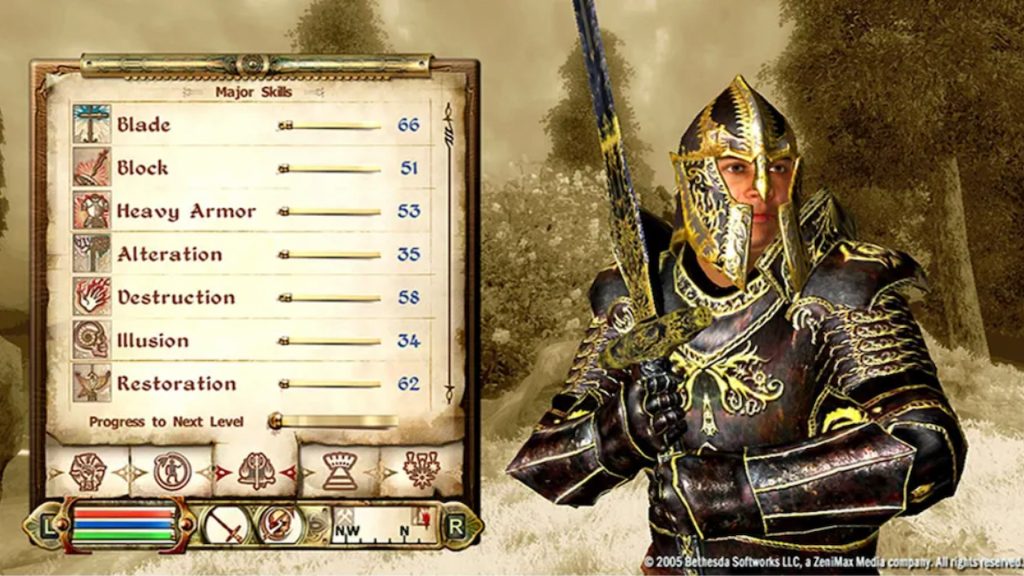
My first journey through Oblivion echoes the experience of many others. After watching the epic opening staring Patrick Stewart as the emperor and Jeremy Soule’s legendary music, I spam the crouch button to find, to my delight, that I levelled up. Naturally, I crouch every chance I get after this realization. That is, until I jump to see my Acrobatics level up. It doesn’t take a rocket scientist to see where this lead me. I ended up with acrobatics and sneak levels more than twice as high as my other attributes. I felt like I was on a fast track to out-level my opponents, since of course, attribute levels contribute to one’s overall level increase. I quickly found myself getting pounded by high ranking Daedra kitted with glass armor during the battle of Kvatch and with nothing to defend myself with but useless acrobatics, stealth, and mercantile attributes. In short, Oblivion gives you the illusion of freedom when in reality, it punishes you for prioritizing non-combat skills and attributes. An Oblivion remake or remaster needs to address this imbalanced level scaling issue in order to exude the kind of quality it needs to succeed … unless you just use a level scaling mod, if the remake supports mods, that is.
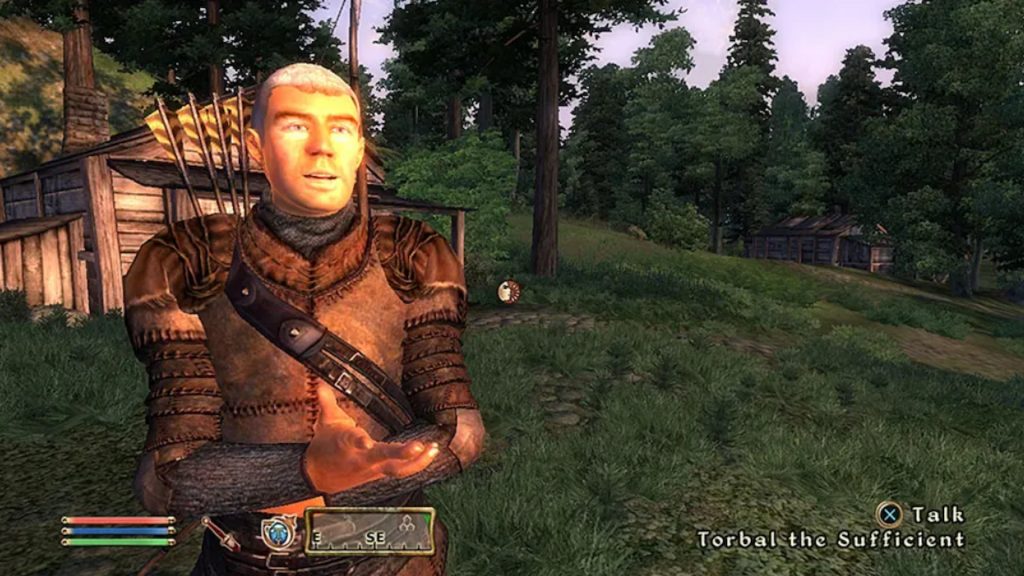
NPCs also made vanilla Oblivion feel outdated to play, thanks in no small part to the small pool of voice talent and repeated lines. I like to give Oblivion credit for inventing radiant AI in games, but that too was a bit rough around the edges due to its newness. Running into the same NPC only to hear them have three different voices and repeated dialogue sure did break the illusion of a living breathing world. And let’s not bring up how often an NPC would accidentally get killed or bug out. Still, the NPCs all having month-long schedules featuring sleep timetables, where they eat for breakfast and dinner, and who they talk to, remains one of the most revolutionary systems in games. Few games match the scope that Oblivion did back in 2006.
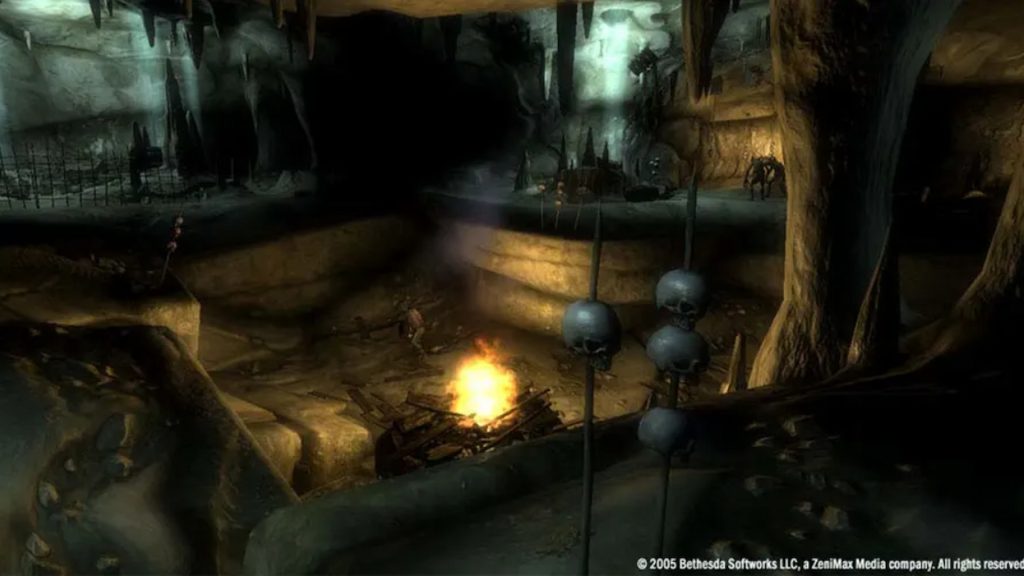
Another innovative element within Oblivion was the then-new Havok physics engine which allowed the player to manipulate anything from enemy corpses to sweet rolls. I’ll never forget firing my first arrow at the bucket in the sewer tutorial area and being blown away by how realistic the bucket would react to weight and force. Even today, lots of open world games lack that kind of visceral physics impact regarding ragdoll effects and manipulation of environmental objects, so this is still an area that can impress with the added bells and whistles of a remake or remaster today.
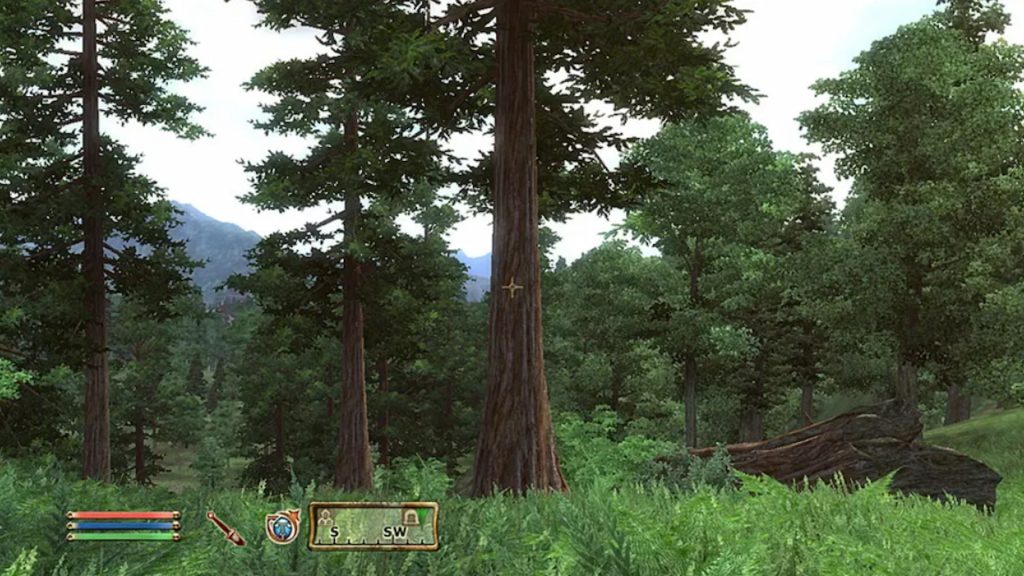
Of course, at the center of any TES game is the open world exploration, and in this Oblivion did not disappoint. The majestic forests of Cyrodiil provided a good amount of density divided between cities, ruins, dungeons, Oblivion Gates, and various other unmarked places of interest. The impressive NPC schedules and quality of questlines helped support Oblivion’s open world exploration. Of course, a remake could help erase the feeling of ‘sameness’ that Cyrodiil exhibits by adding more diverse architecture and variation in environmental terrain to differentiate the ubiquitous oak tree forests.
Like the samey outdoor environments, dungeons in Oblivion lacked curated design and personality. Every dungeon feels more or less the same, with a randomized scattering of assets and traps and no shortcut back to the entrance, making the trek even more annoying. This is one area that Skyblivion is successfully remedying with hand-crafted dungeons featuring unique layouts and traps, something we hope the remake or remaster can attempt to fix as well.
Combat usually spices up a dull dungeon, but not in Oblivion’s case. Like other Elder Scrolls titles, fighting in Oblivion feels weightless and rather tepid. Your melee consists of a basic one-two swing, heavy attack, and block. Magic is more interesting, but still rather simple and lacking in viscerality. A remake could add combo attacks unique to each weapon type or at least some better sound effects and viscerality.
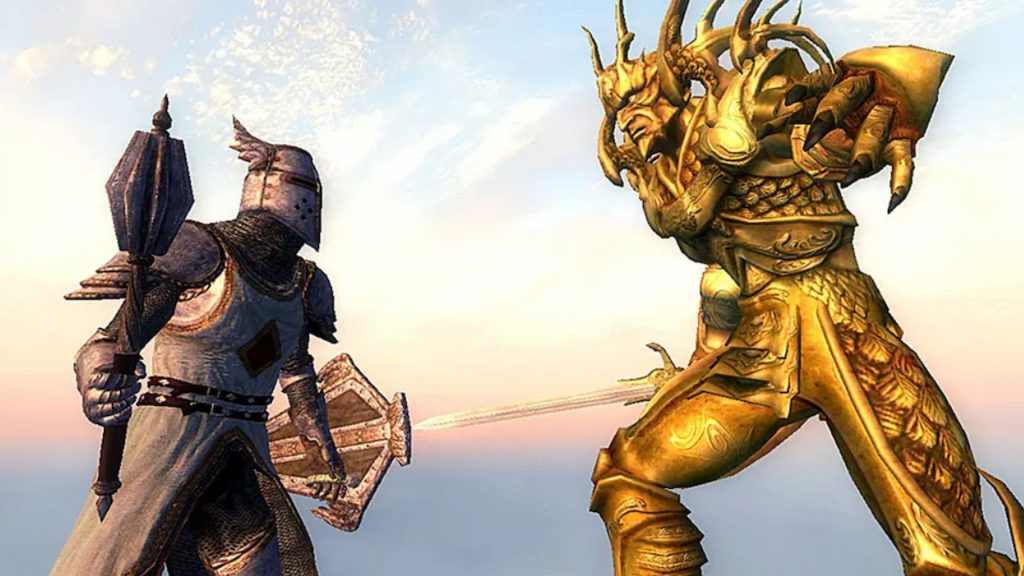
By contrast, the questlines in Oblivion are regarded as some of the most interesting and satisfying in the series. The Dark Brotherhood and Shivering Isles questlines are particularly noteworthy, but the game’s main quest is unusually great as well. I say unusually because The Elder Scrolls has a well-earned reputation for its throwaway main storylines. Oblivion’s main quest features the voice talent of Sean Bean as Brother Martin, the rightful heir to the recently murdered Uriel Septim. Your interactions with Martin are well written and, perhaps more importantly, serve to highlight him as the main hero of the story and not your character. Oblivion is the only Elder Scrolls that doesn’t suffer from ‘main character syndrome’ – the repeating Bethesda trope where the entire story revolves around you. Helping establish an heir to the empty throne is rather satisfying in Oblivion, and the spectacle of the set-pieces (like the Daedric Prince stomping around the Imperial City) is too awesome to ignore here. Best of all, you can permanently shut down all of the Oblivion gates when finishing the main quest, and what better reward is there than that?
Oblivion still has its charms today, with a revolutionary AI schedule system, a beautiful open world, and some great quests to invest in. Even with its legacy and memeability, Oblivion can be difficult to return to in its vanilla state. Janky combat and a frustratingly unbalanced level scaling systems understandably steer some gamers clear of the game today. There’s plenty of mods out there that improve aspects of gameplay and graphics, so the question arises: why remake it all these years later? Well, there’s clearly still a lot of demand for an Oblivion remake, as seen by the support that Skyblivion has received through the years. How this Oblivion remake will compete with Skyblivion remains to be seen, and just what it’ll add or improve is just as much a mystery. We’ll have to wait until the Xbox Direct to see if it leans more toward a full-on remake or a lightly brushed up remaster, but here’s hoping at least one or more of the major flaws get addressed either way.
Note: The views expressed in this article are those of the author and do not necessarily represent the views of, and should not be attributed to, GamingBolt as an organization.
https://ift.tt/RSAO4yf

